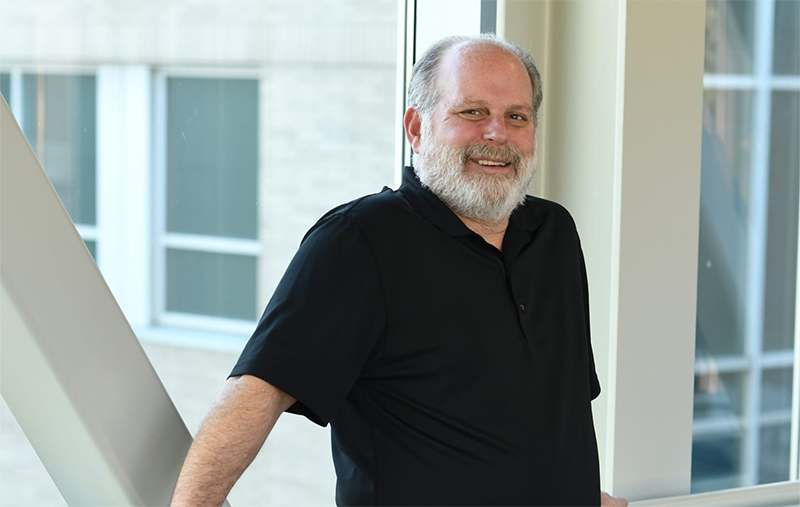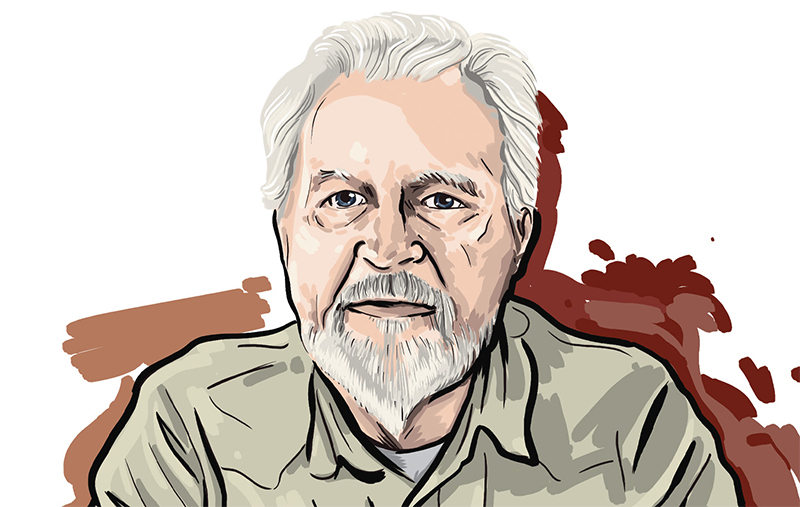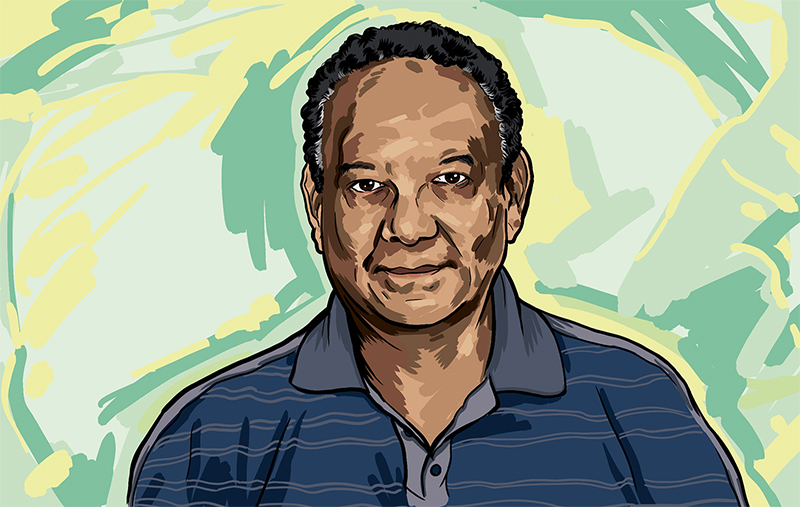

By Larry Ginsberg
Updated May 7, 2021: When we first profiled Josh Binn in March of 2019, none of us were aware that a global pandemic was almost 12 months away from devastating New Jersey, the United States and the world. In his role as a team member working at Hackensack University Medical Center, Josh was on the front lines working every day from the first COVID patient in New Jersey arriving in March 2020 through today. Josh credits his continued therapy and treatment for getting him through the stress, anxiety, isolation and uncertainty of the pandemic. He continues to do well and encourages everyone to be mindful of how you are feeling emotionally, don’t hesitate to share how you are feeling and seek care if needed. Now more than ever, be kind to your mind. There is no better time. For information on our mental health and addiction services in New Jersey visit HackensackMeridian.org/GetBehavioralCareNow.
For Hackensack resident Josh Binn, there was a feeling that eluded him for many years—a feeling that may seem basic to many people. For decades, on a daily basis, Josh just didn’t feel like himself or enjoy the simple moments of life. Fifteen years ago, he was diagnosed with stress and anxiety disorder, and later depression.
While Josh has always been comfortable talking about his diagnosis, much of society remains uncomfortable discussing it. On top of that, Hollywood and television have etched unflattering stereotypes of his condition into our minds for generations.
Josh is the type of person who you would meet and describe as a great guy, a devoted dad and husband, a loyal and trusted friend, and a reliable and warm colleague to those who worked with him at Hackensack Meridian Health for more than 20 years. Yet his illness is unusual in many ways because it is only recently being understood for what it is: a medical condition that can be treated.
For Josh and his family, the impact of his condition is no different than a diagnosis of cancer, cardiovascular disease or a devastating injury. However, a diagnosis of a mental or emotional related illness is very different than others because you cannot see the disease or its effects from the outside, view them on an X-ray or even comprehend what it feels like if you haven’t experienced it yourself. Josh says so many people are living with various levels of these illnesses, with those around them having no idea they are suffering.
“I really want to share my story, because there is nothing to be ashamed or embarrassed about for anyone suffering from a mental health related illness,” Josh says. “Our pain is as real as the cancer patient’s, stroke or heart attack survivor’s, and there are extraordinary and innovative therapies available that can change your life. Sometimes I think the hardest part of seeking help may be overcoming the fear of ‘what will my friends or colleagues think.’”
Uneasy Journey, Bright Path Ahead
Josh’s clinical diagnosis began with stress and anxiety disorder. “I found some relief through a combination of medication, working with therapists and using cognitive behavior techniques to feel ‘normal,’” he says.
Often these conditions can be exacerbated by stressful life events, loss or circumstances that may trigger more severe symptoms.
“A combination of events happened in late 2016 that led me into a deep depression,” Josh adds. “Through the encouragement of a trusted friend in the behavioral health field, I went to Hackensack University Medical Center for treatment, and that turned my life around.”
After a short hospitalization and a few weeks of medical leave, Josh found the feeling that eluded him for so long, thanks to his combination of medication, talk therapy and cognitive behavior techniques.
Josh also experienced benefits and relief from integrative health and medicine techniques. “I am not the type of person to instantly believe in things like aromatherapy, acupuncture and meditation— and admit to even being a bit skeptical. But I have tried them and find them extremely calming and relaxing,” he says. “They are now an essential part of my daily life.”
A Strong Support System
Josh found overwhelming acceptance and support from family, friends and colleagues at work. Being so open actually allowed those around him to recognize their own discomfort with the topic, and facilitated dialogue and understanding with loved ones.
Josh’s lifelong friend Jeff Schweizer found his own view of mental health forever changed after Josh shared details about his struggle with depression.
“Josh and some of our other buddies took an annual golf trip together. It was something we had done for years and always looked forward to. When Josh shared with us that he didn’t feel up to it a couple of years ago because he was battling depression, we did what should come naturally to anyone you care about: We rallied to our friend’s side and did what we could to help him,” Jeff shares.
Josh has traveled a long road, one that is often lonely because society has not been ready to accept and embrace those suffering from mental illness. But a new day is dawning where Josh can enjoy life’s little moments again and feel like himself. Likewise, a day is dawning where society can embrace people like Josh, standing with and supporting them without judgment.
“It is truly unfortunate that there are historical stereotypes and stigmas associated with behavioral health or mental health related conditions that prevent people from seeking help, especially because depression or mental illness impacts almost every family in some way,” says Donald J. Parker, president Hackensack Meridian Health Behavioral Health & Integrative Medicine and Carrier Clinic. “With people like Josh and so many celebrities and leaders coming forward to share their struggles with depression and other conditions, the door to dialogue and understanding is now open, and will hopefully help others understand that behavioral health issues are no different than any other disease or illness.”
Signs of Depression

While symptoms of depression can vary from person to person, the more common symptoms may include:
- Anger, irritability or aggressiveness
- Feeling anxious or restless
- Loss of interest in work, family or formerly enjoyable activities
- Problems with sexual desire and performance
- Feeling sad, empty or hopeless
- Inability to concentrate or remember details
- Feeling tired, not being able to sleep or sleeping too much
- Overeating or not wanting to eat at all
- Suicide thoughts or attempts
- Physical aches or pains, headaches or cramps
- Inability to meet the responsibilities of work, caring for family or other activities
- Engaging in high-risk activities
- A need for alcohol or drugs
- Becoming isolated from family and friends
If you are experiencing symptoms of a behavioral health or mental illness related condition, you are not alone. Resources and support are available at a Hackensack Meridian Health location near you.
Next Steps & Resources
- To make an appointment with a provider, call 800-822-8905 or visit our website
Find a doctor near me

No Kidney Stones About It

A Surgery-Free Way to Treat an Enlarged Prostate

Gut Pain Not to Be Ignored
